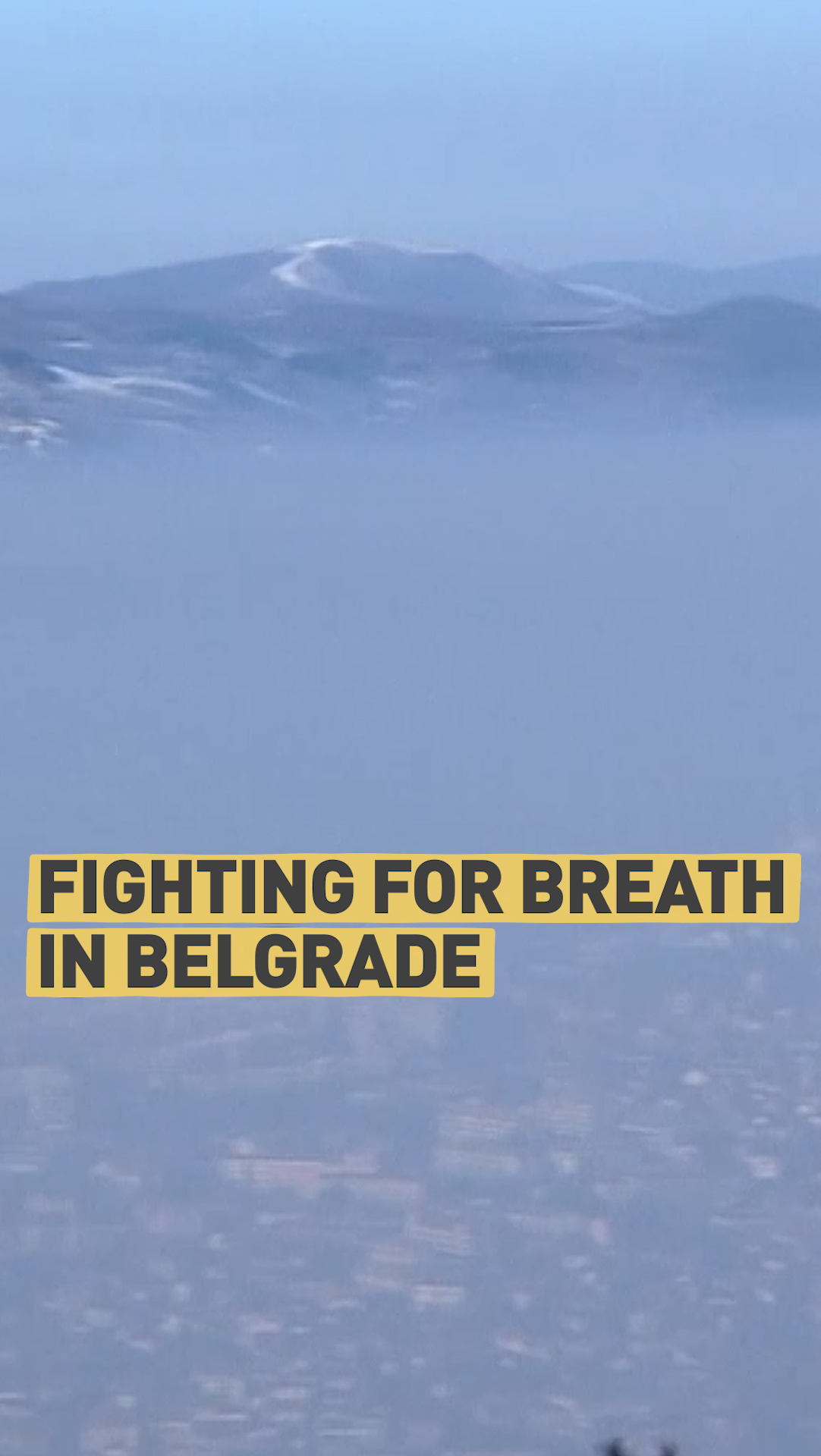01:39

Until recently, nobody in Belgrade could have imagined the Serbian capital would be one of the most polluted towns in the world. That it would top huge industrial cities across the globe on that grim ranking list. But that has been the case for more than a week.
And Belgrade is not the only place in the Balkans with such a problem. Sarajevo's air pollution data show the situation there is much worse than in Belgrade.
The main culprits for this situation are a combination of several factors. One is freak weather conditions, with no winds that help air circulation. There are also toxic exhaust fumes from old diesel cars, of which hundreds of thousands are still roaming the streets of Balkans cities.
And finally, there is the archaic way of how people heat their houses and apartments – most of them still use wood, and coal for the heating, as well as many small, centralized heat plants, that are burning either coal or heavy oil.
All of those are spewing into the air, thousands of tons of pollutants. This year differs in that the weather this winter has prevented dirty air from being blown away by the wind. So, many towns in the Balkans, besides the Serbian and Bosnian capitals, are facing the same problems.
This kind of polluted air has most affected those with chronic pulmonary and heart diseases, along with children. Some are using surgical masks, hoping that they would protect them from the tiny particles suspended in the air, but doctors are saying those are of no use against this type of pollution.
Indeed, according to data from Global Alliance on Health and Pollution, Serbia is the top country in Europe for pollution-related deaths and ranks ninth in the world, outstripping India.
Authorities in the region are advising people to go to the mountains and avoid this pollution. Sarajevo authorities gave a 50 percent ticket discount to all of its citizens to use the ski lift to the Trabevic mountain to escape the pollution for at least several hours a day.
The Serbian government held an emergency meeting on the issue. Yet, no emergency measures were taken. Instead, the government issued a list of actions that could be made in the long term.
There is no end in sight for this situation, since meteorologists are saying there will be no increase in wind anytime soon, which could have brought relief to the millions in Balkans.